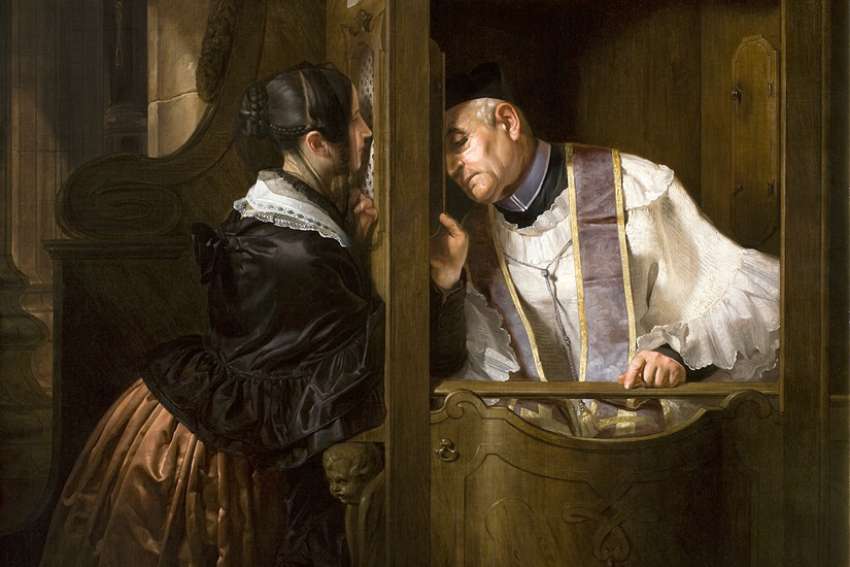This quote from the Baltimore Catechism expresses well the splendour of the sacraments. In our modern culture there is a sad trend towards watering down the true potency and necessity of the sacraments. Many sacraments are neglected or avoided altogether. In particular, many people are reluctant or afraid to go to confession. Yet the benefits of this sacrament are so vast that our fear often holds us back from the very sacrament that will help us overcome our fear.
Every time I go to confession I feel ashamed to admit my sins, but I feel unburdened afterwards and filled with God’s love and healing. After my first confession, the priest took the paper I had written my sins on and burned it, to remind me that they were completely forgiven. The feeling of relief and peace this gave me was very consoling.
With the start of Lent, we begin to prepare our hearts to celebrate the most important holy season of the Church year: Easter. One of the best aids to help us on this journey is Reconciliation. The healing we receive from penance reaches beyond freeing us from a state of mortal sin. We receive special sacramental grace that helps us to avoid sin in the future, we gain a new understanding of our weaknesses and we grow in humility.
For me, penance is a fresh start and a new beginning. It gives me renewed vigour, determination and hope that I can overcome my struggles. The grace we receive from this sacrament should not be underestimated. The sense of inner peace and unity with God we experience after confession is refreshing to the spiritual life.
Through the sacrament of Reconciliation, we gain a new transparency and perception. Sinful habits sneak up easily and examining our spiritual life helps us to see what we need to watch out for. Once we identify problems, we are one step closer to solving them.
In addition, confession helps us grow in humility and realize our dependence on God. It is not easy to admit to ourselves or others our failings, but in admitting our imperfections, we develop a humble attitude. We recognize that we depend on Jesus, and it is because of Him that we are saved, and not from our own merit.
Going to confession may seem very difficult, as we feel embarrassed and ashamed. We need to remember that there are no limits to God’s mercy, for God is the Father of the prodigal son and He is glad to welcome us back to Him. Priests, who act as the representatives of Christ, are not stern judges ready to yell at you. They are glad when we come to receive the sacrament and want to help us in our spiritual life. Before I receive the sacrament, I find it helpful to read the following words from Pope Francis:
“When we go to confession, we feel a bit ashamed. That happens to all of us, but we must remember that this shame is a grace that prepares us for the embrace of the Father, who always forgives and always forgives everything.”
(Wentzell, 16, is a Grade 11 student in Seton Home Study School in Thunder Bay, Ont.)


